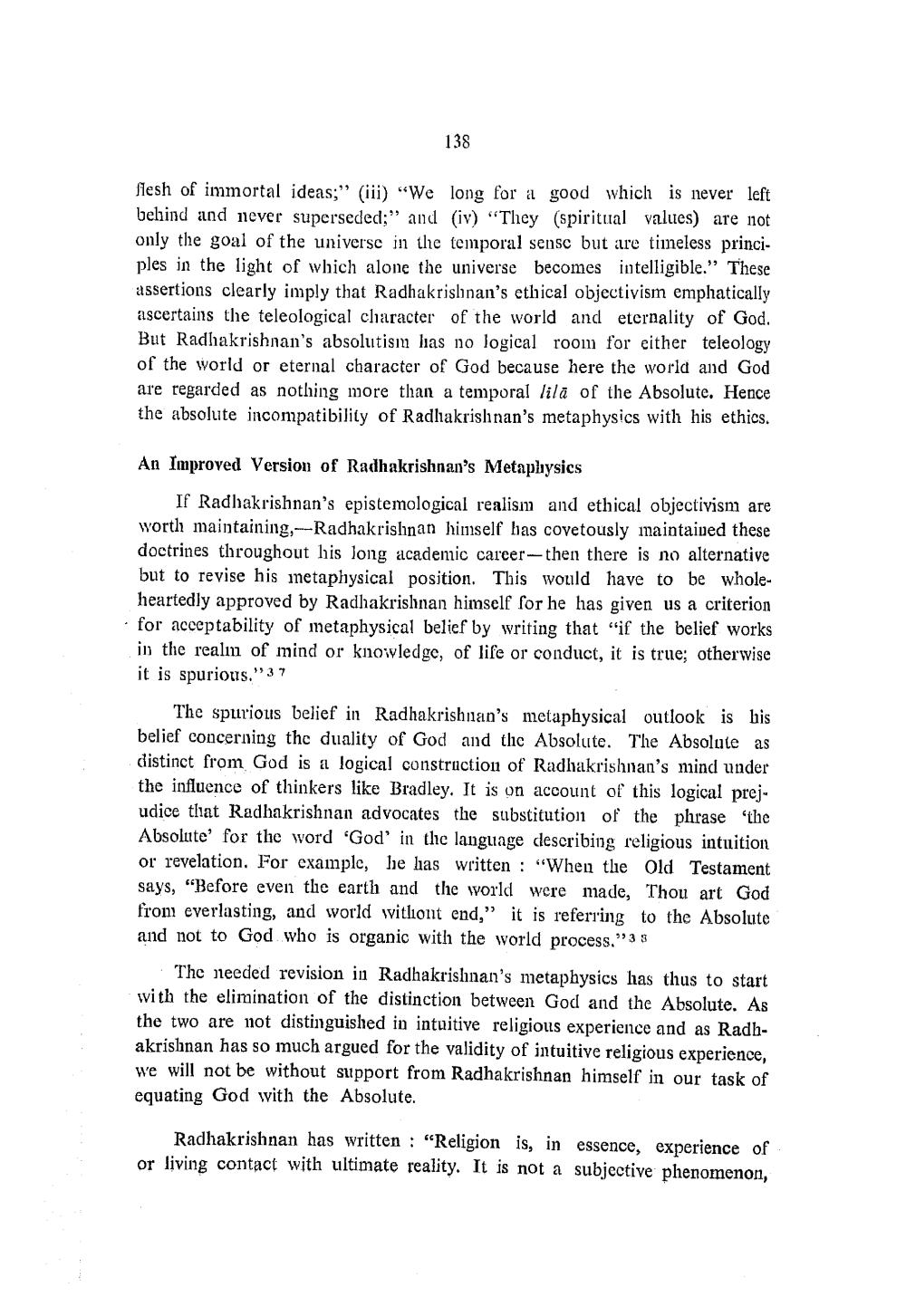________________
138
flesh of immortal ideas;" (iii) "We long for a good which is never left behind and never superseded;" and (iv) “They (spiritual values) are not only the goal of the universe in the temporal sense but are timeless principles in the light of which alone the universe becomes intelligible." These assertions clearly imply that Radhakrishnan's ethical objectivism emphatically ascertains the teleological character of the world and eternality of God. But Radhakrishnan's absolutism has no logical room for either teleology of the world or eternal character of God because here the world and God are regarded as nothing more than a temporal lila of the Absolute. Hence the absolute incompatibility of Radhakrishnan's metaphysics with his ethics.
An Improved Version of Radhakrishnan's Metaphysics
If Radhakrishnan's epistemological realism and ethical objectivism are worth maintaining ---Radhakrishnan himself has covetously maintained these doctrines throughout his long academic career--then there is no alternative but to revise his metaphysical position. This would have to be wholeheartedly approved by Radhakrishnan himself for he has given us a criterion · for acceptability of metaphysical belief by writing that "if the belief works
in the realm of mind or knowledge, of life or conduct, it is true; otherwise it is spurious."37
The spurious belief in Radhakrishnan's metaphysical outlook is his belief concerning the duality of God and the Absolute. The Absolute as distinct from God is a logical construction of Radhakrishnan's mind under the influence of thinkers like Bradley. It is on account of this logical prejudice that Radhakrishnan advocates the substitution of the phrase "the Absolute for the word 'God' in the language describing religious intuition or revelation. For example, he has written : "When tlie Old Testament says, "Before even the earth and the world were made, Thou art God from everlasting, and world witliont end," it is referring to the Absolute and not to God who is organic with the world process."'38
The needed revision in Radhakrishnan's metaphysics has thus to start with the elimination of the distinction between God and the Absolute. As the two are not distinguished in intuitive religious experience and as Radhakrishnan has so much argued for the validity of intuitive religious experience, we will not be without support from Radhakrishnan himself in our task of equating God with the Absolute.
Radhakrishnan has written : "Religion is, in essence, experience of or living contact with ultimate reality. It is not a subjective phenomenon,




